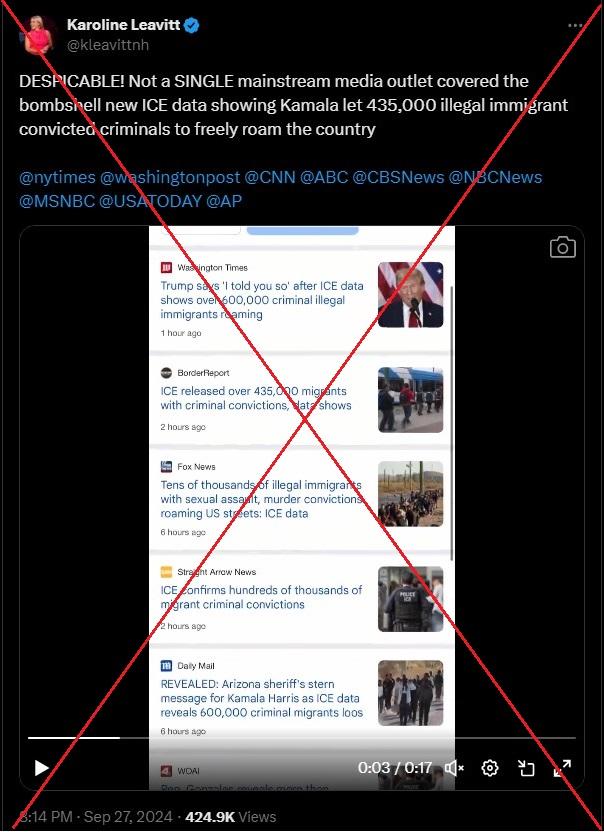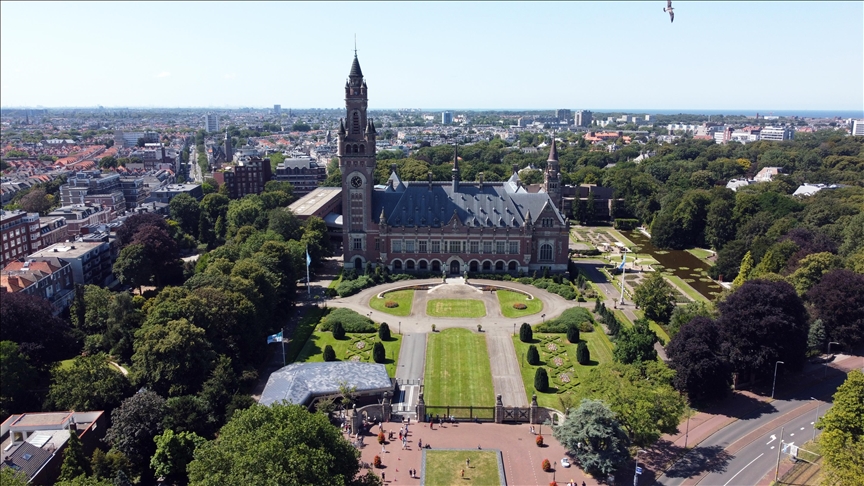INTERVIEW: Umbrella Movement was form of anti-colonial resistance: former leader
'It was about not just accepting' a fate decided by colonizers, says Alex Chow.
By Chen Zifei for RFA Mandarin
2024.10.01

The 2014 Umbrella Movement in Hong Kong was about standing up and resisting the city's fate as a democracy-free zone under Chinese rule, former student leader Alex Chow told Radio Free Asia in an interview marking the 10th anniversary of the protests.
Now, overseas activists are continuing that work for their comrades in prison, he said.
Chow was head of the Hong Kong Federation of Students and vice president of the Hong Kong University Student Union when the ruling Chinese Communist Party issued a plan on Aug. 31, 2014, outlining electoral reforms.
They would give everyone a vote – but they would choose from among government-approved candidates.
The decision came despite earlier mass protests for fully democratic elections, including a sit-in the Central business district on July 1, 2014, organized by Chow.
While the annual mass march was allowed to go ahead, the sit-in that followed was forcibly broken up by police. It was a brief preview of what was to come as the city's pro-democracy movement pivoted towards large-scale civil disobedience.
The public backlash took the form of a student strike, camps on major roads, sit-ins, mass rallies of hundreds of thousands of people and an unofficial referendum that came out overwhelmingly in favor of open nominations for electoral candidates.
While the authorities refused to back down, saying there was 'no room' for discussion on the electoral rules, police kept up the pressure by firing tear gas and beating protesters, in clashes that began this week 10 years ago.
To protect themselves, demonstrators used umbrellas, and the “Umbrella Movement” was born.
Reaching the limits of patience
Chow, who had been about to start a PhD at the University of California in Berkeley, served a seven-month jail term for the storming of Civic Square outside government headquarters, which kicked off the movement on Sept. 26, 2014. Fellow democracy activist Joshua Wong got six months and Nathan Law eight months.
 Pro-democracy activists, from left, Joshua Wong, Alex Chow and Nathan Law, walk out from the Court of Final Appeal in Hong Kong, Feb. 6, 2018. (Vincent Yu/AP)
Pro-democracy activists, from left, Joshua Wong, Alex Chow and Nathan Law, walk out from the Court of Final Appeal in Hong Kong, Feb. 6, 2018. (Vincent Yu/AP)His sentence was later overturned by the city's Court of Final Appeal, and he eventually left Hong Kong for good.
"The whole meaning of the Umbrella Movement, even at the time, was closely linked to the idea of resisting our fate, of not just accepting [the Aug. 31 decree]," Chow told RFA Mandarin in a recent interview.
"It was about the people of Hong Kong being in charge of their own destiny, and it showed that they had reached the limits of their patience, and would no longer tolerate a situation in which their fate was decided by colonizers."
Hong Kongers, who were shut out of their own political process in the early years of British colonial rule, enjoyed increasing democratic representation from the 1980s until 2021, when the authorities rewrote the electoral rules to bar opposition candidates from running for public office, saying only "patriots" loyal to Beijing would pass the complex political vetting process.
"The people of Hong Kong wanted to take back their autonomy," Chow said, in a reference to promises of a "high degree of autonomy" made by Beijing before the 1997 handover to Chinese rule. "That has always been the starting point ... for resistance by the people of Hong Kong over the past decade."
"The Umbrella Movement was about refusing to accept that fate, and the 2019 protests showed that the only option they had left by then was to resist desperately," he said.
Another path
While former Umbrella Movement student leaders like Nathan Law, Agnes Chow and Joshua Wong took the movement forward by forming a new political party, Demosisto, and running for seats in the Legislative Council, Chow thought there had to be another way.
"There was some discussion after 2014 about whether or not student leaders should run for election, but ... that wasn't the answer for me," he said. "I felt that my contribution would be to look back at the shortcomings of our organization, and the methods used by mass movements."
"I chose to go to the United Kingdom and the United States to study for my masters, then my PhD, and find my answers that way," Chow said.

Chow has spent the decade since the movement thinking and discussing the Umbrella Movement in depth, in a bid to find a better way to run such mass campaigns.
"We have learned our lesson, which is that the regime is going to cling very tightly to its power, and it won't share power or govern along with the people [of Hong Kong]," he said. "As rebels and advocates, should we hang in there, or should we back off and surrender at certain points?"
But the main thing stopping overseas activists from focusing on something else is the sheer number of their comrades who remain behind bars back home, jailed or arrested in an ongoing crackdown on public dissent and peaceful political opposition that began under the 2020 National Security Law, and has continued this year with the Article 23 legislation.
"Of course the regime retaliated, and the political leaders and my former comrades now in prison are the scapegoats of the movement," he said. "They can't leave Hong Kong."
"Besides being sad for them, it's about how we can actively channel their suffering into a force that fuels the pro-democracy movement. How those of us in the resistance movement overseas can put that energy back into the movement, and give it back to those who stayed behind, and who are suffering."
"That's the only thing we can do right now," Chow said.
Translated by Luisetta Mudie. Edited by Malcolm Foster.
EXPLAINED: How the umbrella became a Hong Kong protest symbol
10 years ago, demonstrators used umbrellas to protect against pepper spray – and images went viral.
By Paul Eckert for RFA
2024.09.26
 A protester holds a placard that reads "Occupy Central" between anti-riot policemen and protesters outside the government headquarters during the Umbrella Movement in Hong Kong, Sept. 27, 2014.
A protester holds a placard that reads "Occupy Central" between anti-riot policemen and protesters outside the government headquarters during the Umbrella Movement in Hong Kong, Sept. 27, 2014.Ten years ago, as the streets of Hong Kong pulsed with pro-democracy demonstrations, riot police repeatedly fired pepper spray and tear gas at the crowds that sometimes swelled to more than 100,000.
To protect themselves, protesters held up umbrellas – which became an iconic image of the protests that went viral in local and international media. Yellow became the protest umbrella color for its contrast against the dark clothing of many demonstrators, and the protests became known as the "Umbrella Movement."
It was the largest show of civil disobedience since control of the former British colony was handed over to China in 1997. Tens of thousands of people, many of them students, camped in the streets and for 11 weeks occupied much of the business district of the city of 7 million people.
What sparked the protests?
The protesters’ main demand was the right to elect the chief executive of Hong Kong, which was promised in the Basic Law, the constitution for post-handover Hong Kong as a “special autonomous region” of China under the "one country, two systems” formula that gave the city some autonomy and the right to retain its system for 50 years.
Small protests over the lack of movement on candidate selection had been increasing when, on Aug. 31, 2014, China’s parliament decreed that elections in Hong Kong in 2017 would be permitted -- from a list of candidates pre-approved by Beijing and nominated by a body of business elites and pro-Beijing groups.
 Pro-democracy protesters open their umbrellas to mark one month since they took the street, in the Admiralty district of Hong Kong, Oct. 28, 2014. (Nicolas Asfouri/AFP)
Pro-democracy protesters open their umbrellas to mark one month since they took the street, in the Admiralty district of Hong Kong, Oct. 28, 2014. (Nicolas Asfouri/AFP)The ruling sent people out into the streets banging pots and pans and chanting, and prompted waves of university campus strikes and protests.
Pro-democracy leaders formed plans for a civil disobedience campaign against the decision, releasing a manifesto called “Occupy Central with Love and Peace” and calling for the takeover of streets outside the city’s financial district on Oct. 1, China’s national day.
A fast-moving series of campus protests and actions by student groups to take over city streets led “Occupy Central” to be moved up several days.
People built a protest city of tents and stages that rang out with protest songs while students did homework in camps. Activists and ordinary citizens demonstrated outside government headquarters and occupied city intersections and thoroughfares.
How did umbrellas get involved?
Hong Kong authorities declared the protests illegal and a “violation of the rule of law,” and tensions began to mount.
On the night of Sept. 26 and into the next day, riot police clashed with protesters on the streets, firing pepper spray at them and arresting some. Over subsequent days, protesters began using umbrellas to protect themselves.
“The image is a poignant one, and emphasizes the asymmetry of force: an innocuous household object held up against helmeted police officers wielding poisonous substances for crowd control,” the U.S. publication Quartz wrote.

The first known appearance of the term "umbrella revolution” was in the hashtag #UmbrellaRevolution generated by a news aggregator and circulated with a Sept. 28, 2014, report on the protests in the online edition of the British daily, The Independent.
Use of the hashtag along with eye-catching umbrella photographs spread among Hong Kong journalists and activists. The outpouring of umbrella memes included clever Cantonese puns and word play – and even a meme featuring Chinese paramount leader Xi Jinping holding a yellow umbrella.
Was the Umbrella Movement an example of a “revolution?”
Despite the worldwide sympathy for Hong Kong protesters, campaign leaders were quick to disavow the term “revolution.”
They flatly rejected comparisons to the color revolutions that had seen authoritarian governments in former Soviet republics and elsewhere overthrown, stressing their focus on practical reforms.
"We are not seeking revolution. We just want democracy!” Joshua Wong, a leading figure of the student movement, was quoted by The Washington Post.
"This is not a color revolution," Lester Shum, the deputy leader of the Hong Kong Federation of Students, told the Post.

Protest leaders warned that talk of revolution would alienate the broader Hong Kong public and give ammunition to Chinese Communist Party leaders who viewed the protests as rebellion and wanted to crush them.
The mainstream Occupy Central campaign agreed on “Umbrella Movement,” but some groups that advocated more aggressive tactics continued to use “Umbrella Revolution.”
The occupation and protests that began on Sept. 26 lasted in pockets of Hong Kong for 79 days, until Dec. 15.
They did not achieve their goal of universal suffrage and Wong, Shum and many protest leaders are in jail, while others have gone into exile to avoid arrest under draconian security and sedition laws.





_(cropped).jpg)







